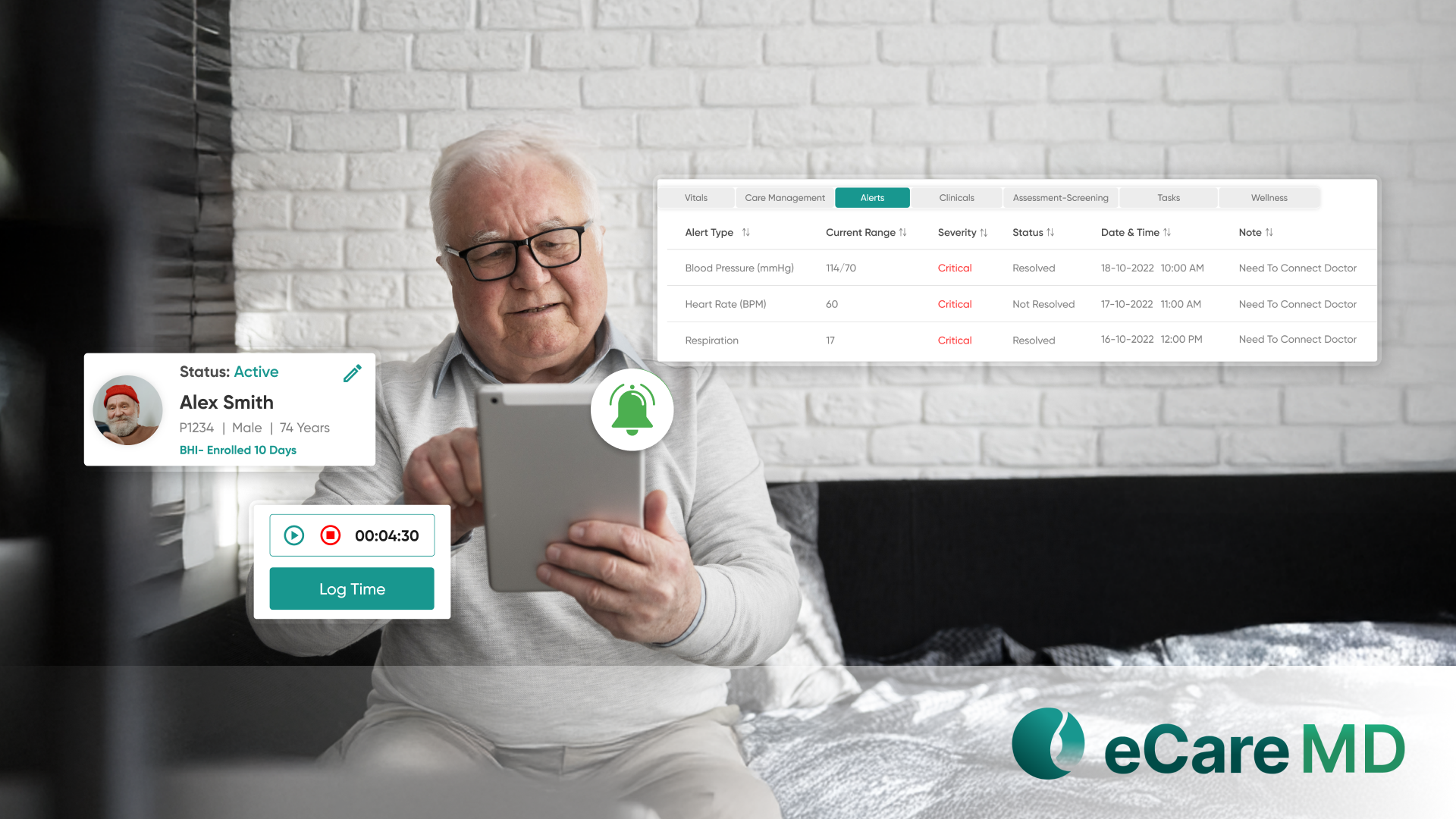Client Overview
Based in Illinois, USA, the client has a nephrology group treating 15000+ patients with chronic kidney disease (CKD) to provide structured, between-visit care and to reduce stage 4-5 CKD-related readmissions. Having an expert provider team to handle a large group of patients.
Business Challenges
While managing patients with kidney disease, the client’s provider team has to work collaboratively to provide valuable care. The current business workflow fails to manage different tasks between care team members and consumes a lot of manual work because of irregularity and inconsistency, as below:
1. Manual patient follow-up lacked structured documentation
In the PCM care coordination program, the client’s team works together while obtaining patient health outcomes in multiple areas for providing quality care, where documentation plays an important role. The manual update of each activity for different care team members creates inconsistency in documentation, which causes a delay in goal progress, affecting the patient’s health outcomes.
2. No Care team member collaboration or role-specific task tracking
In the process of non-face-to-face care services, the client has drawbacks of not having an integrated team collaboration system and role-specific task tracking module, which results in mismanagement of the caregiving process while tracking chronic kidney diseases, which requires constant patient monitoring from different providers.
3. Time spent while reviewing lab, medication, and calling patients went undocumented
As the PCM program required logged time to qualify PCM CPT codes such as 99424, 99425, etc., the current workflow lacks documentation of these logged times to submit CPT codes for activities such as time spent reviewing labs, medication, and calling patients. Because of the insufficiency of this system, the client's business holds back in the reimbursement process, resulting in revenue loss.

4. Not visible who was due for PCM Minutes or eligible for billing
The client's business does not have a time-logged system, and is unable to track PCM due minutes and eligible billing, making it hard to manage billing at the end of the month. This is creating a major blocker for the client’s revenue generation model in the PCM program.
Solution Provided
The collaboration takes place between the Client’s team and Medarch Inc. to discuss a possible solution for the challenges that the Client was facing. Medarch Inc. has different healthcare solutions, such as the care coordination software “eCareMD”, which was introduced to fill the gap in the client's business. Additionally, the provided eCareMD care coordination software has implemented the following solutions;
Solution Highlighted
1. Alert system for patients needing constant attention
With the goal of achieving less readmission in chronic kidney disease, the implemented “eCareMD” software has an alert configuration system from which providers can configure, or the system auto-generates alerts based on the criticality of Chronic kidney disease patients. This alert functionality prevents risk situations, avoiding unnecessary critical situations for patients. As a result, the client's business has reduced stage 4-5 CKD-related readmissions.

2. Task routing between care team members and proper documentation
The eCareMD has a role-based system to provide seamless workflow between different care team members. This ability was impacted as care team members worked together with improved task routing and proper documentation in areas such as assigning provider-centric tasks, time logging for the care manager and physician separately, and creating all the audit logs and log reports. Notes, care plans, and document updation history are also logged for each care team member to maintain updation records and documentation.
3. Secure reminders boosted patient adherence to dietary and medication plans
The implemented eCareMD software performs patient-centric activities with the feature of automated reminder generation for the patients for such areas as informed consent, medication adherence, action plans, taking vital readings, task completion, goal progress, etc. From these tasks, the care team is keeping the patient engaged in their health journey.
4. Structured care plans supported nephrology protocols
Chronic kidney disease requires a condition-oriented care plan in PCM care service, where eCareMD plays a very important role while providing over 160+ structured care plans. This platform already has a predefined care plan template based on each condition, such as chronic kidney disease, to obtain expected outcomes from the patients. This saved very valuable time for the care team, which they had been investing before to create manual+ and care plans.
Value Added
1. 42% increased PCM revenue with audit-ready reports
The standardized report of audit logs and time logs has been useful to the client’s business to gain more revenue by validating each report during the reimbursement process. The client practice increased their PCM revenue by 42% which was considered a huge success for eCareMD.
2. Reduced unplanned hospitalizations for CKD patients by 21%
eCareMD’s key features, like patient communication, alert generation, reminders, and role-based access, have resulted in reducing emergency ER visits for CKD patients by 21%, saving daily critical situations for the patients.
3. Time savings allowed two care coordinators to manage 400+ patients
The automated workflows, role-based access, and administration portal manage a good amount of patients in a single place, saving valuable work hours for care team members, which allows two care coordinators to manage more than 400 patients.
4. Centralized view helped providers track outcomes and trends
For the client’s business, the centralized view of eCareMD’s dashboard has been useful in tracking business outcomes and trends by following the analytic dashboard and visual aids.

